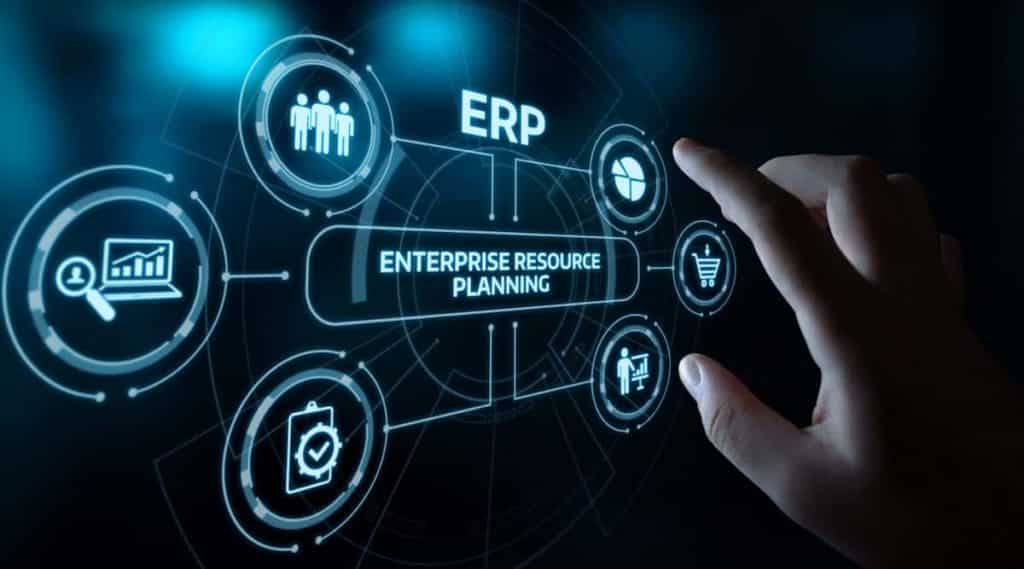

Efficiency of implementation of ERP-systems
source link: https://bigdataanalyticsnews.com/implementation-of-erp-systems/
Go to the source link to view the article. You can view the picture content, updated content and better typesetting reading experience. If the link is broken, please click the button below to view the snapshot at that time.

Efficiency of implementation of ERP-systems
Under the conditions of fierce competition characterizing the modern market, economic actors are constantly forced to search for ways to improve the efficiency of their business. At the same time, one of the priority tasks of the market participant is the task not to lag behind competitors regarding applied business technologies.
For these reasons automation systems, including ERP systems and design, are gradually becoming a standard for enterprises. There is a natural question about economic efficiency of ERP-systems application.
How Efficiency is Measured
Today there are many approaches to measurement of efficiency of ERP-system application. It is explained by the relative novelty of the question, by the variety of life situations. The main thing is specificity of the subject of evaluation itself. ERP-system application cannot be considered as an independent project with isolated resources, cash flows and effects. This project is integrated into the customer’s core business and affects the key performance indicators of this business. That’s why erp software development has become so relevant.
The subtlety is how to separate the effects of implementing an ERP system from other factors affecting key business metrics. No one doubts today that these effects are positive. But their quantitative measurements are still the subject of scientific debate.
- In any case, the effects of the ERP-system can be divided into two main groups:
- economic (measurable) indicators of implementation efficiency;
- Organizational (quantitative) changes that are not quantifiable.
What is the economic benefit of implementing an ERP system? This is getting real economic benefits from the use of the whole package of modules or individual functional blocks. When calculating the monetary expression, they are all based on the ratio of costs and revenues. They must be obtained under the conditions of the implemented software.
Efficiency Factors
The return on investment in an ERP system comes not from the system itself. But from the increased efficiency of the business processes it supports. The enterprise resource management system itself, no matter how good it is, has little impact on increasing a company’s productivity.
If you continue to follow your old business processes after implementing a new system, you can expect only the same, or likely worse, performance. An ERP system can provide and support many new kinds of processes. But it’s up to the company itself to decide what those business processes should be. Decide whether to use them afterwards.
It is impossible to talk about the correct. Effective implementation of information technologies, designed to fundamentally improve the market position of the company, without considering achieving a particular level of key performance indicators of the company. The system should be set up to achieve the strategic and tactical goals of the organization.
If companies, while implementing an ERP-system, ignore corporate strategy. Consider its use as a technology for implementing only tactical tasks, then, despite the undeniable benefits received, the fundamental improvements in the company’s business may not come. Take this into account when contacting xamarin development company.
Defining your business strategy and reflecting that strategy on the goals. Objectives that the selected ERP system is designed to solve is the most important thing in deciding to implement.
Recommend
-
 64
64
既然本地ERP与云ERP本质上没有太大的区别,那么为何还有那么专家在强调云ERP?从ERP自身角度来看,本地与云的不同点到底在哪?
-
 15
15
Join GitHub today GitHub is home to over 50 million developers working together to host and review code, manage projects, and build software together.
-
 14
14
中台的崛起代表了一部分中国领先企业的“去 ERP 化”趋势,从以资源集约化为中心走向以用户价值为中心,从闭源单体架构的商业 ERP 套件走向分布式微服务架构的业务开放平台。
-
 13
13
Monday, 14 December 2020 15:10 Seek help with ERP implementation By Stephen Withers ...
-
 8
8
What is ERP and Understanding ERP systems If you’re like most business owners, you rely heavily on technology for every aspect of your company’s daily operation. From processing customers’ orders and addressing their concerns to...
-
 5
5
How to prepare for an ERP implementation Share Large-scale IT implementation projects often require significant manpower, financ...
-
 8
8
ERP Errors: When It Comes to Integration, Focus on Business Value Read time: 4 mins
-
 10
10
Erigon Erigon is an implementation of Ethereum (aka "Ethereum client"), on the efficiency frontier, written in Go. NB! In-depth links are marked by the microscope sign (🔬) Disclaimer: this software...
-
 7
7
Yes, Design Systems Do Improve Developer Efficiency and Design Consistency Design systems are great for developer efficiency, visual consistency, and accessible experiences. But measurement can be challeng...
-
 9
9
From evaluation ERP solution to SAP implementation benefit SAP recently have completed 50 years of its inception and in this journey, expanded to 180 countries and touched each industry type. SAP horizon is expanded from 1...
About Joyk
Aggregate valuable and interesting links.
Joyk means Joy of geeK
